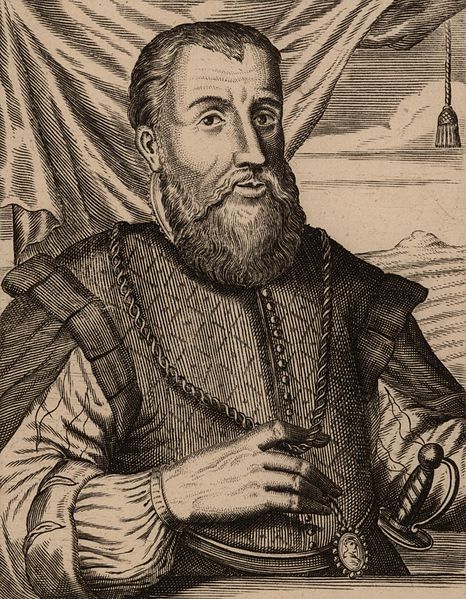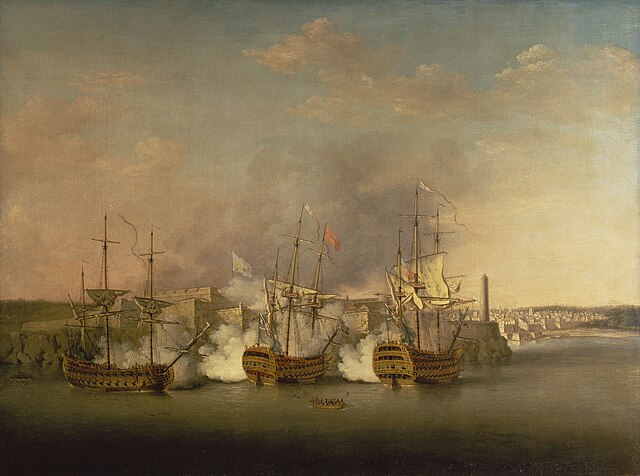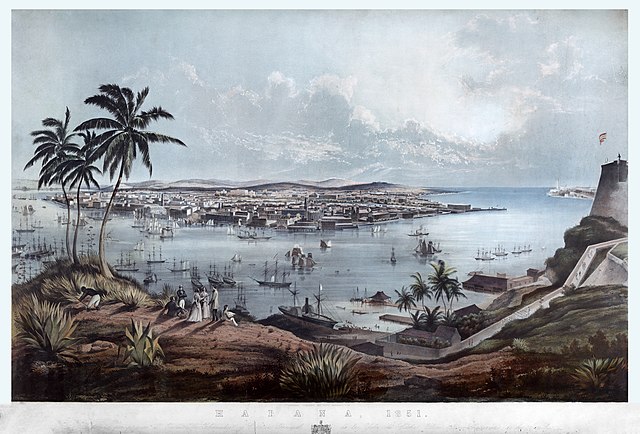The Ten Years' War, also known as the Great War and the War of '68, was part of Cuba's fight for independence from Spain. The uprising was led by Cuban-born planters and other wealthy natives. On 10 October 1868, sugar mill owner Carlos Manuel de Céspedes and his followers proclaimed independence, beginning the conflict. This was the first of three liberation wars that Cuba fought against Spain, the other two being the Little War (1879–1880) and the Cuban War of Independence (1895–1898). The final three months of the last conflict escalated with United States involvement, leading to the Spanish–American War.
Embarkation of the Catalan Volunteers from the Port of Barcelona by Ramón Padró y Pedret [es]
Carlos Manuel de Céspedes
Col. Federico Fernández Cavada
General Martínez-Campos in Havana, 1878
Cuba, officially the Republic of Cuba, is an island country, comprising the island of Cuba, Isla de la Juventud, archipelagos, 4,195 islands and cays surrounding the main island. Cuba is located where the northern Caribbean Sea, Gulf of Mexico, and Atlantic Ocean meet. Cuba is located east of the Yucatán Peninsula (Mexico), south of both the American state of Florida and the Bahamas, west of Hispaniola, and north of Jamaica and the Cayman Islands. Havana is the largest city and capital. Cuba is the third-most populous country in the Caribbean after Haiti and the Dominican Republic, with about 11 million inhabitants.
Diego Velázquez de Cuéllar, conquistador of Cuba
A painting of the British capture of Havana in 1762
Slaves in Cuba unloading ice from Maine, c. 1832
19th century view of Havana

![Embarkation of the Catalan Volunteers from the Port of Barcelona by Ramón Padró y Pedret [es]](https://upload.wikimedia.org/wikipedia/commons/thumb/5/57/Embarcament_dels_voluntaris_catalans_al_port_de_Barcelona.jpg/640px-Embarcament_dels_voluntaris_catalans_al_port_de_Barcelona.jpg)






